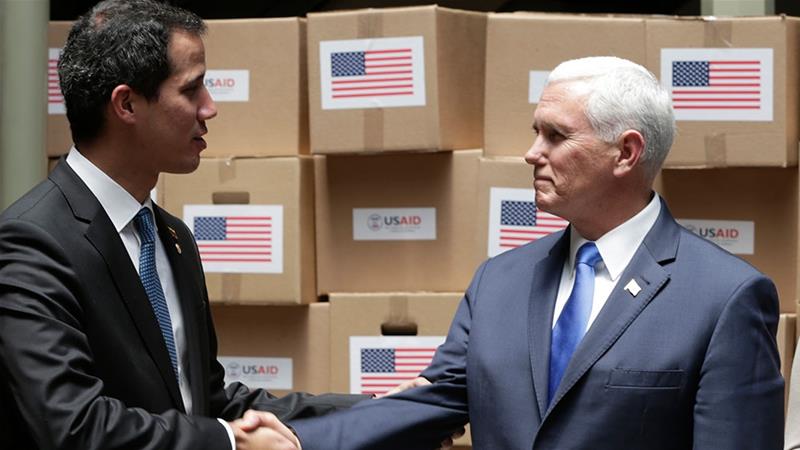U.S. President Donald Trump imposed a freeze on all Venezuelan government assets in the United States (August 6). “All property and interests in property of the Government of Venezuela that are in the United States … are blocked and may not be transferred, paid, exported, withdrawn, or otherwise dealt in,” according to the executive order released by the White House.
The executive order signed by Trump goes well beyond the sanctions imposed in recent months against Venezuela’s state-run oil company PDVSA [PDVSA.UL] and the country’s financial sector, as well as measures against dozens of Venezuelan officials and entities. According to the White House, the action aims at isolating Caracas. The Venezuelan foreign minister had recently filed a complaint against Washington at the United Nations for the US violation of Venezuelan airspace.
Venezuela has been faced with a serious political crisis since January this year after opposition leader Juan Guaido declared himself president. The support of the United States and certain European countries for Guaido’s claim that President Maduro was illegitimate exacerbated the tensions.
There are a few points to consider about the US sanctions: first, there was a strategy under former President George W. Bush dubbed “talk softly sanction softly”. The strategy, developed during Bush’s tenure, continued under Barack Obama who followed the same strategy during his eight-year presidency. Under Donald Trump in the first year, the ‘talk softly’ part was removed and ‘sanction softly’ remained in force, but in the second year the ‘sanction softly’ section is also being changed to general sanctions.
It now seems that the decision to impose general and integrated sanctions means entering the phase of regime change. Internationally, the action has no legal basis without the involvement of the United Nations, the Security Council, and the support of other countries. Only because the United States has issued the sanctions and despite the recognition by Guaido by 48 countries the Europeans still do not fully support the sanctions. One factor that seems to be a priority in the Venezuelan debate is the entry of China and Russia into the equations. The involvement of China and Russia has put Venezuela within the framework of international competition between the three countries and the issue has become more complex than ever although Trump’s doctrine in 2017 exactly reflected that concern.
Trump’s national security strategy doctrine has raised concerns about the entry of China and Russia into regional rivalry and their proximity to Cuba and Venezuela. So it seems that the US president has taken this concern into the executive level and follows this policy. Perhaps if China and Russia did not enter into the equation, the United States would not intensify its intervention and follow its original policy; because the views and comments on Maduro are different in the United States. One group argues that Maduro was trying to follow the model of the Cuban-American disputes and repeatedly demanded a meeting with the Americans, but to no avail. This group believes the Americans did not play Maduro, and because he was not played and the United States did not recognize him, Washington is now pursuing a tough policy against Maduro.
Maduro still tends to get close to the Americans, but the US does not recognize him. As already noted, the arrival of China and Russia has pushed the issue of Venezuela’s nature from regional rivalry to international competition. One of the reasons that caused an escalation of the sanctions against Venezuela today is the fluctuation in oil production. Reports suggest that US oil output has gone through fluctuations and the tensions in the Persian Gulf and the oil tanker incidents have aggravated the issue. Because if oil exports decline in the Persian Gulf it will have tangible impacts.
Given that Venezuela was not fully sanctioned until today and that individuals and entities were sometimes sanctioned, it could still have the necessary breathing room for the foreign currency and the USD system. But given that Venezuela is heavily dependent on the US dollar system, the new sanctions will create difficult conditions for the country and will lead to widespread poverty among the population and make the opposition stronger.
There are three options for Maduro to decide what solutions or what scenarios he will face: first, he will opt for negotiation, recognition of the opposition, national reconciliation and allow participation of the opposition, steer the situation toward national reconciliation across the country and gradually resolve the problems.
The second option is to continue the status quo, bypassing the sanctions, accepting economic austerity, or forming a coalition in the club of countries blacklisted by the US.
There is also a third option, which is very unlikely to occur: Go for tension and military conflict.
The United States is currently trying to somehow cripple the economic structure of Venezuela through the integrated sanctions system, prompting the people to revolt and overthrow Maduro and bring the opposition to power.










0 Comments